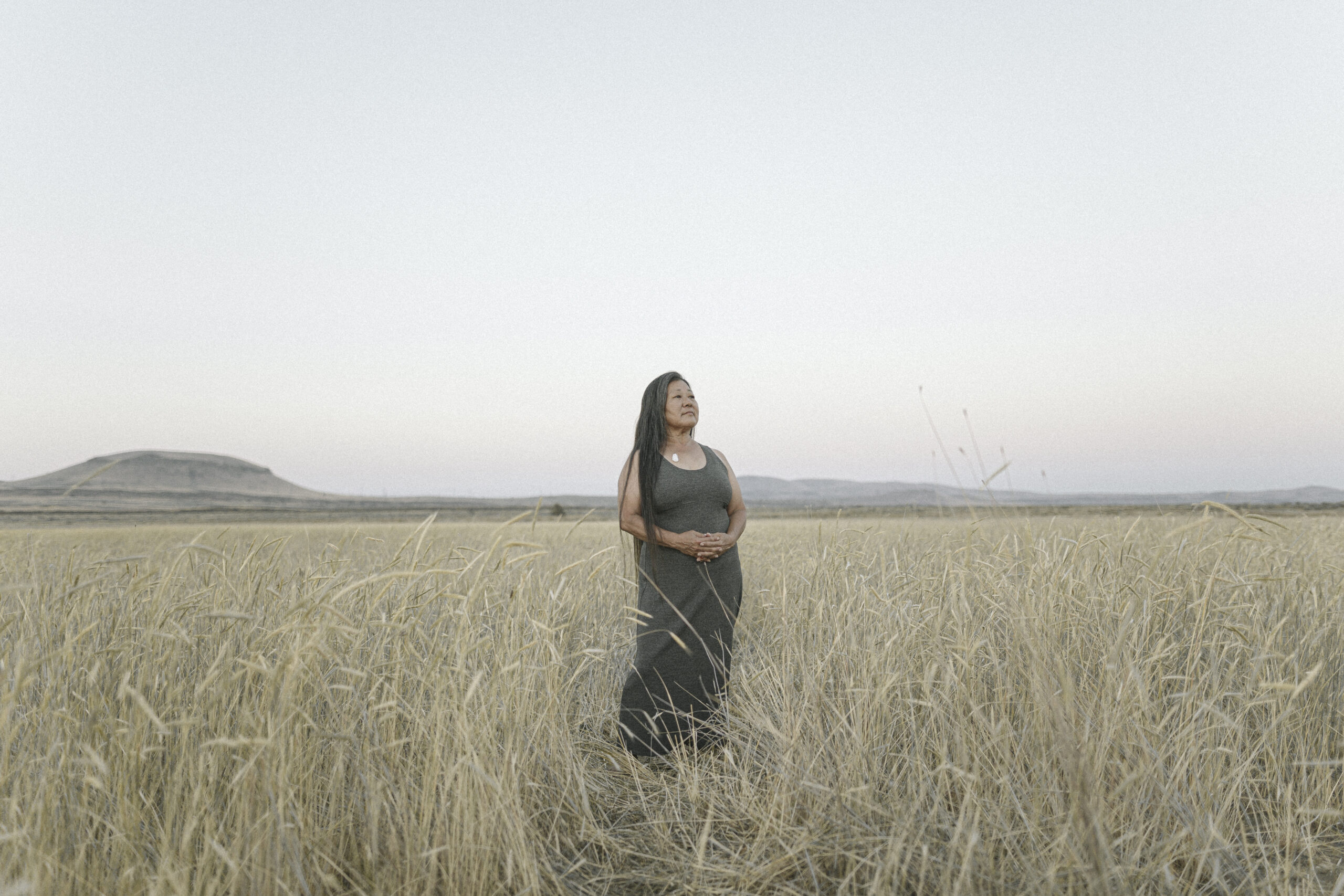“I am sending this fine book to you so that you might always remember the 442nd Combat Team, a fighting outfit composed of hundreds of others like myself awaiting and anticipating the opportunity to prove forever our loyalty to the United States.”
— Toshi Kuge
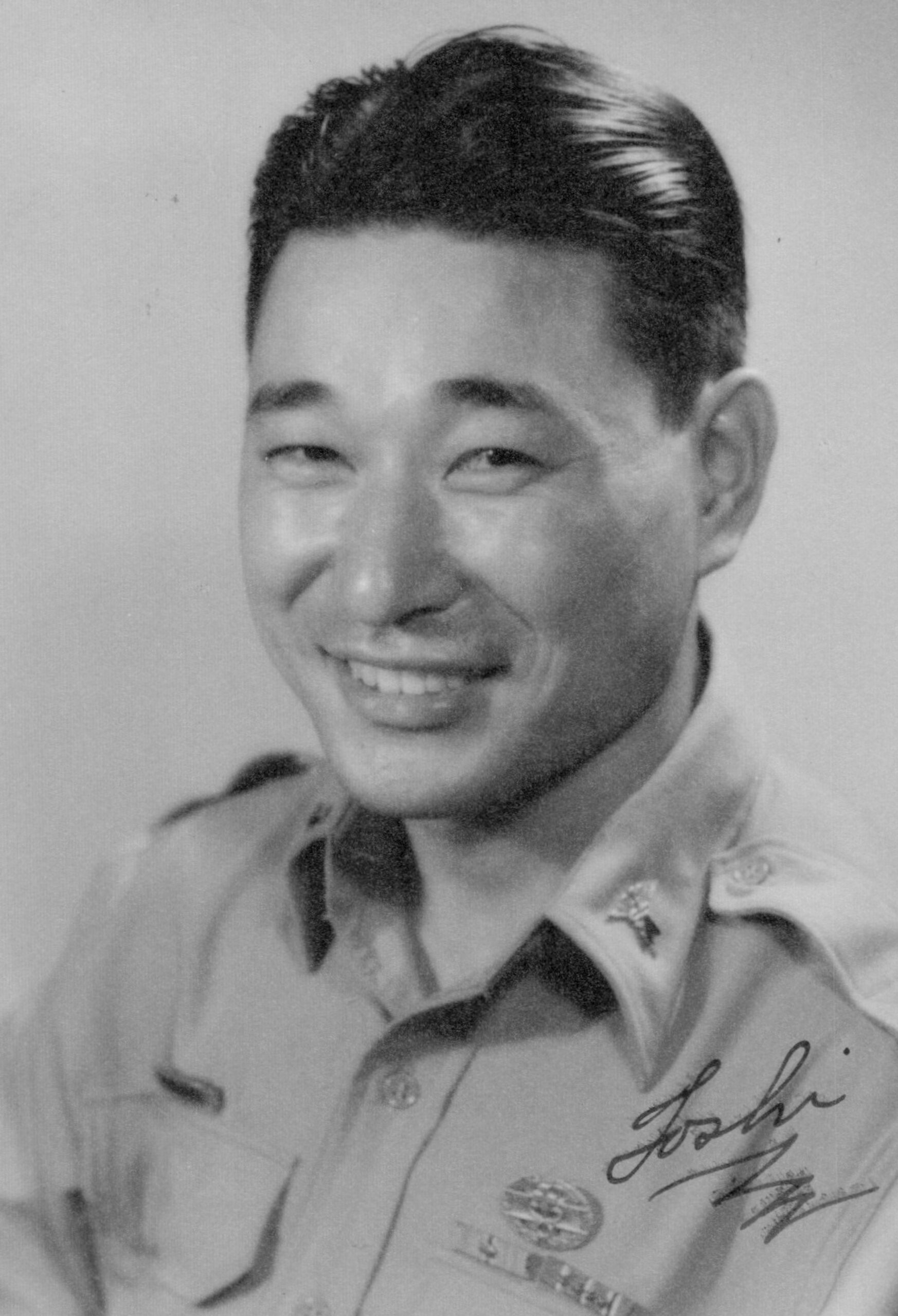
Toshiaki Kuge
Nisei
Toshiaki Kuge—who went by “Toshi”—was born in Astoria, OR. He was a 22-year-old pre-med student when Japan attacked Pearl Harbor, putting his studies on hold. Soon after, he and his family were forcibly removed from their home in Portland, OR and detained at the Portland Assembly Center before eventually being transferred to Tule Lake.
Conditions at Tule Lake were challenging, but Toshi found comfort in exchanging letters with his then-girlfriend Mae, who was incarcerated at Heart Mountain. After about a month in Tule Lake, Toshi and his brothers Yutaka and Thomas joined a seasonal leave program at a farm labor camp in Idaho, where they spent a season harvesting sugar beets.
When the loyalty questionnaire was introduced, Toshi worried about the potential for family separation. In one letter to Mae, he wrote, “Now with segregation of loyal and disloyal, I don’t know where my folks will go… It will be quite a paradox if my father is detained in a camp for disloyal people and me in the armed forces fighting for the U.S.?” In another, he added, “Have you heard from your folks? […] I hear that this segregation program might split up many families.”
As the segregation program unfolded, Toshi volunteered for the 442nd Regimental Combat Team, and his brothers Yutaka and Thomas were drafted. After passing his medical examination in June of 1943, Toshi was sent to Camp Shelby for basic training. While there, he sent Mae an album inscribed, “I am sending this fine book to you so that you might always remember the 442nd Combat Team, a fighting outfit composed of hundreds of others like myself awaiting and anticipating the opportunity to prove forever our loyalty to the United States.”
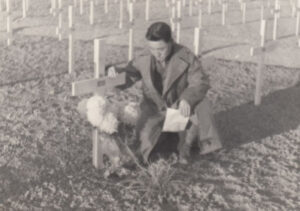
After completing his training, Toshi served as a medic overseas, participating in four campaigns. Meanwhile, in September of 1943, his family back in Tule Lake was transferred to Minidoka, a camp designated for those who answered “yes-yes” on the loyalty questionnaire.
On April 14, 1945, Toshi was awarded his second Bronze Star. Just eight days later, his brother Thomas was killed in action in Tendola, Italy. “He saw his brother’s dead body being brought off the battlefield,” recalls his niece Carole. “He said [his brother] had a smile on his face as if to say, ‘I’ve done my duty. Now, you do yours.’” Toshi visited his brother’s grave several times while he was stationed in Italy. After his Memorial Day visit in May of 1945, he wrote to his family back in Minidoka: “I put the lone carnation there especially for Tom, from all of us.”
After the war, Toshi and Mae married and settled in Portland, OR. Seven years after pausing his studies, Toshi graduated from the University of Oregon Medical School in 1948 and continued to serve in the U.S. Army Reserves. He passed away in 1996.
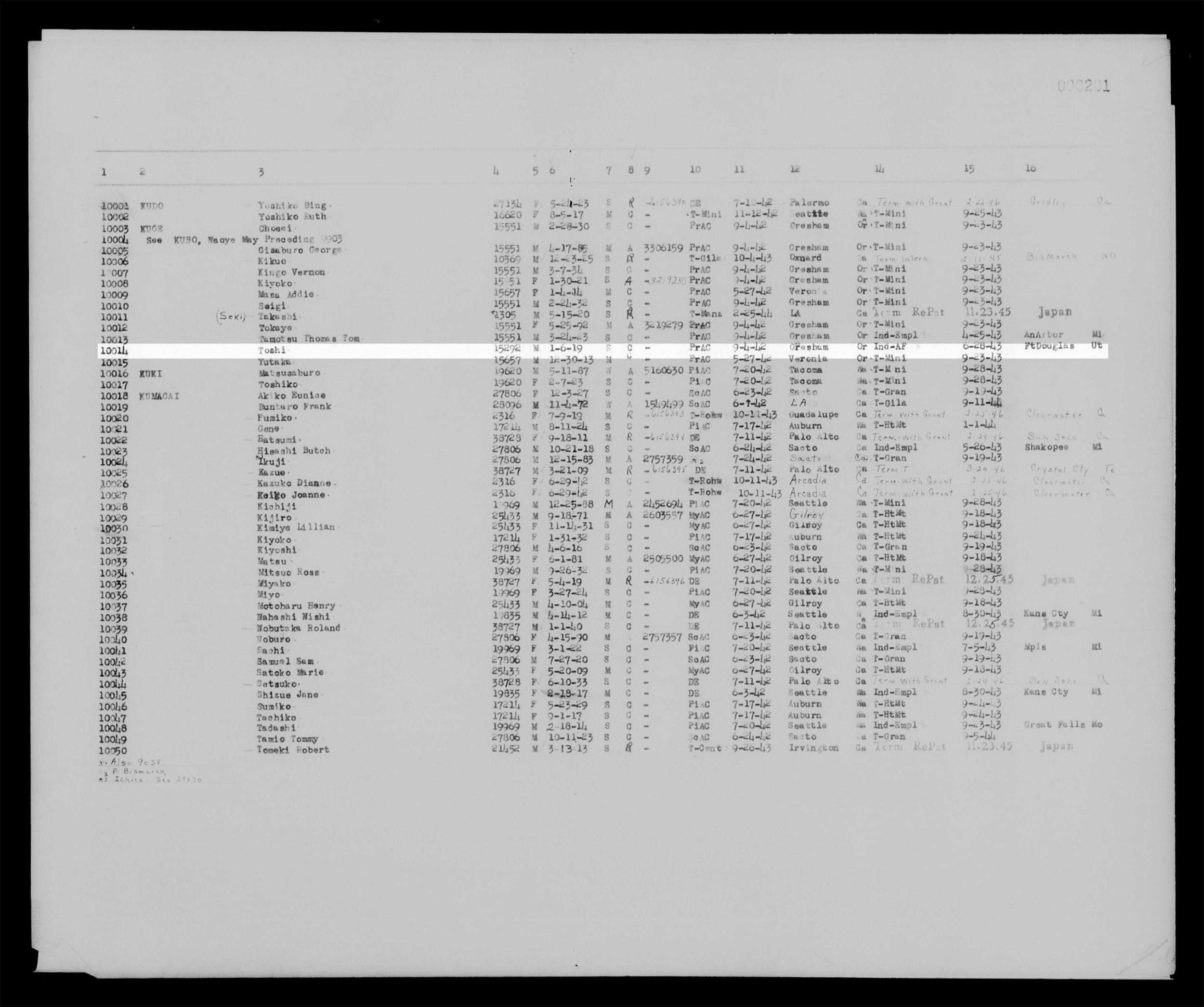
Toshi’s information as it appears in the Final Accountability Roster for Tule Lake. Courtesy of Densho Encyclopedia.
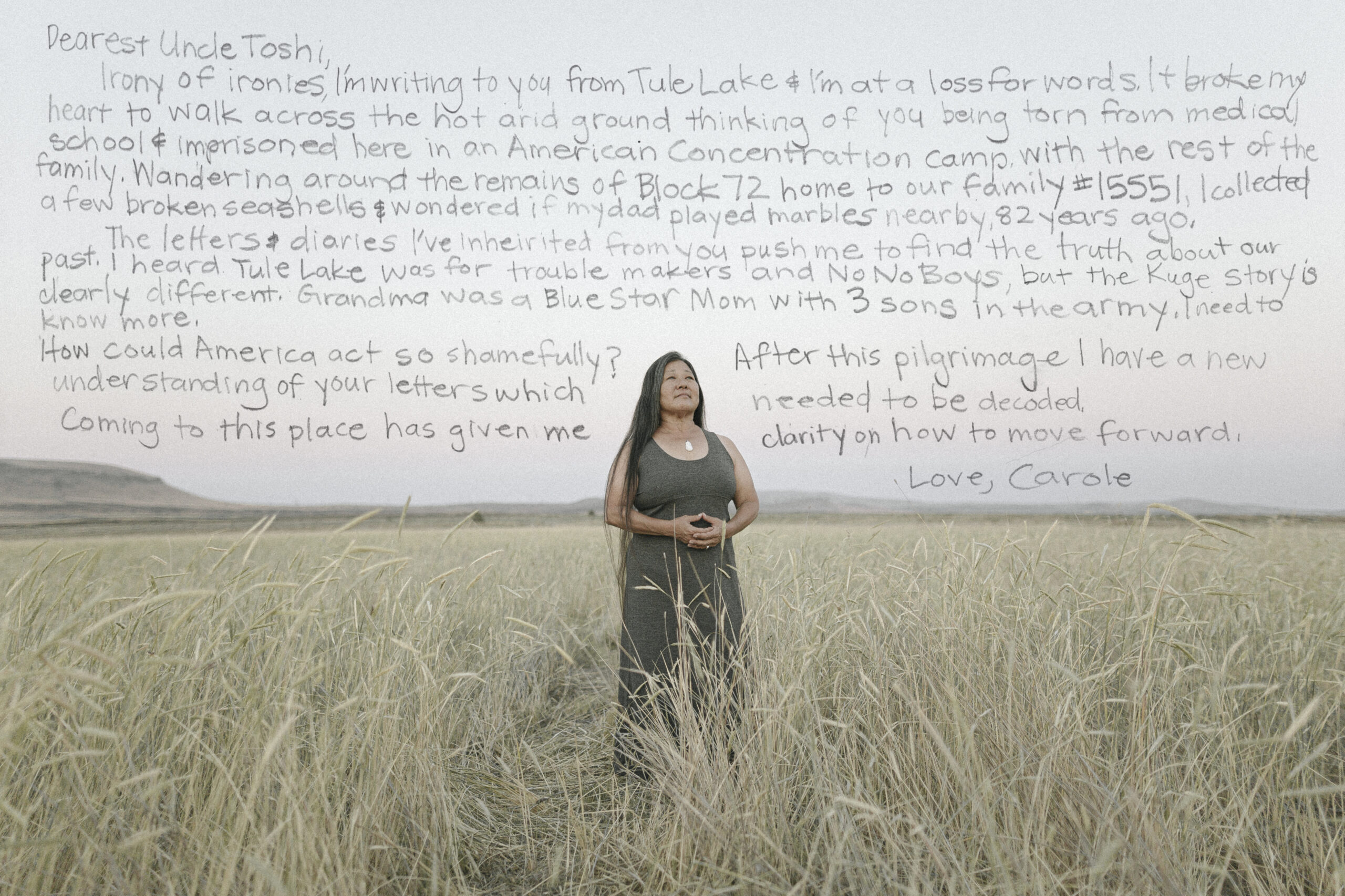
Listen to this portrait.
Carole Kuge Kawamura
Sansei
Carole Kuge Kawamura is the paternal niece of Toshi Kuge. She was born and raised in Los Angeles.
Growing up, Carole did not feel connected to her family history. “My family didn’t really talk about camp,” she reflects. “When they did, it was almost in code, a superficial discussion that hinted at a world I’m only now beginning to discover.”
A retired elementary school teacher, Carole has since taken on the role of family historian, exploring their history through a collection of letters exchanged between her Uncle Toshi and Aunt Mae from 1942 to 1947. “I’ve inherited over 250,000 words,” she says. “Sadly, I am researching my family’s history after my parents have passed away.”
Carole notes how her family history has shaped her American identity. “I think it’s made me very loyal. My son is an Eagle Scout,” she says. “Uncle Tosh and his brothers all rose to the top. I might not have ever risen to the top, but I really push myself to. I think that’s what we need to do as Americans—just to do our best and love each other, even if we don’t like the other person, even if we disagree. That’s what my family has taught me.”


